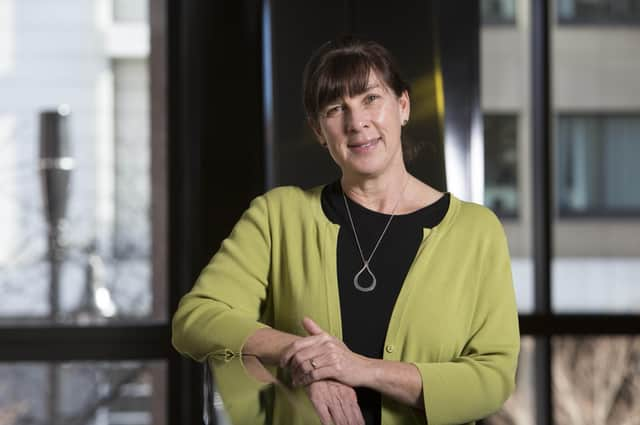Annual Dairy Council Nutrition Lecture at Ulster University spotlights the ‘Forgotten Vitamin’


Sometimes referred to as the ‘forgotten vitamin’, quantifying vitamin K in foods is extremely complex and Dr Booth’s research has shifted our understanding of where vitamin K is found in the food supply, including its presence in dairy foods and, in particular, cheese. Dr Booth and her team’s work has also taken our knowledge of vitamin K’s effects on health beyond the well-known role in blood clotting to examine evidence for bone and heart health.
Speaking at the lecture, Dr Booth said: “People usually think of vitamin K as coming from leafy green vegetables but that’s just one form of vitamin K (known as vitamin K1 or phylloquinone). There are at least 11 variations. My team and I have been working to understand more about these different forms of vitamin K and where they are found in the food supply. In particular, we have been looking at the group known as vitamin K2 (or menaquinones) which are found in fermented foods, including dairy foods. Cheeses are a particularly rich source of vitamin K, and some contain 10 times as much vitamin K as leafy green vegetables. We are working to understand more about vitamin K’s role for health, particularly bone health for older people as well as an exciting new area for vitamin K in osteoarthritis.”
Advertisement
Advertisement
Dr Mike Johnston MBE, Chief Executive of the Dairy Council which has supported the Lectures since the partnership began over 30 years ago, welcomed the expertise and international insights of Dr Booth for a virtual conversation on human nutrition and the ‘forgotten vitamin’.
Commenting he said: “At the time of our annual Lecture last year we had hoped that having a virtual event would be a ‘one-off’, but such has been the nature of Covid that we have had to have a virtual Lecture for a second year. On the plus side, having virtual Lectures has allowed us to engage much more easily with renowned international speakers, through Professor Drewnowski last year, and Dr Booth this year. So, every cloud has a silver lining.”
This is the 32nd Lecture, and the now annual event hosts a variety of leading researchers from universities around the world who deliver lectures on contemporary issues and emerging research within the field of human nutrition. Professor Sean Strain OBE, Emeritus Professor of Human Nutrition, Nutrition Innovation Centre for Food and Health (NICHE), Ulster University said the event has enabled access to world-leading researchers since it first began in 1991.
“The Annual Dairy Council Nutrition Lecture represents a long–standing relationship between the Dairy Council for Northern Ireland and Ulster University. The inaugural lecture was in January 1991, and the second lecture was held in November of the same year.
Advertisement
Advertisement
“The lecture, thereafter, has been held each year in November or December. This annual event has provided important opportunities to access some of the leading international researchers in the field of human nutrition, and is a highlight of the Autumn term at the University.”